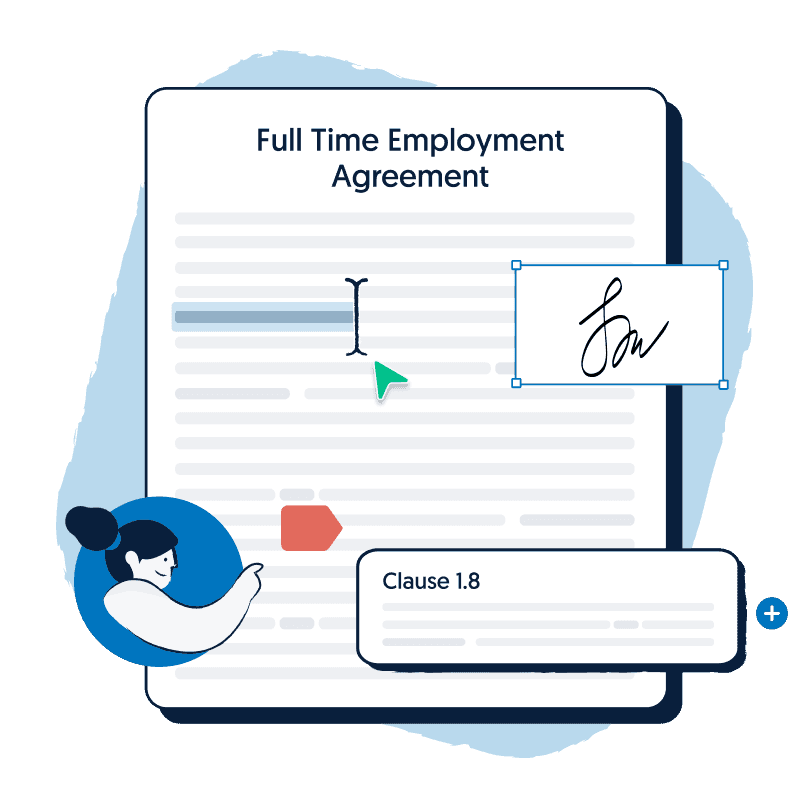Timesheets are an important tool for tracking employee work and pay. Nowadays with electronic and biometric options, they’re easier than ever to track and may seem like a no-brainer. However, understanding what they actually achieve for a business is more complicated than you may first think. To best understand how their use may benefit your business, here are some key points you need to know about using timesheets in Australia.
Complying with employment standards
Fair Work Act 2009 (Cth) and the National Employment Standards
In Australia, an overwhelming majority of employees will fall under the Fair Work Act 2009 (Cth) (‘Fair Work Act’). Under this act, employees are provided with 10 guarantees under the National Employment Standards (NES). These, along with the national minimum wage, set out the minimum standards to be expected for employees. These include things like:
- Maximum working hours.
- Leave entitlements (between annual, parental and compassionate leave, amongst others).
- Public holiday entitlements.
- Notice of termination and entitlements.
However, as an employer, it is more likely you will need to be more familiar with what award schemes or agreements dictate your industries standards. Having a lawyer review any employment agreements will help ensure that these all met.

Get your Full Time Employment Agreement legal document for free.
Timesheets ensure that you can make sure you’re complying with many of these guarantees. Likewise, the Fair Work Act requires that timesheet records are kept for the previous 7 years, including any rosters and payslips.
Awards and Agreements
An award, employment contract, enterprise agreement, or some other registered agreement, will specify how the NES apply to your job. Of note, they cannot set standards lower than the NES. Being aware of what awards apply to you or your employees is extremely important, as it is likely that, depending on the business, multiple may apply. For example, the same award will not apply for the chefs in a kitchen as anyone providing home delivery.
Awards (and the like) are regularly updated, and so it is important to stay up to date with any changes to ensure compliance with your workplace. Fortunately, technology has somewhat streamlined this process. If you form any contracts with Lawpath, you will be automatically notified of any changes that may need to be made as they occur.
Benefits of accurate timesheets
While there are some exceptions to the Fair Work Act (check with the ombudsman whether any of these apply for you) it is more likely than not that it will apply to your employees. Hence, timesheets may be a valuable tool for ensuring you are complying with the standards expected.
Ensuring the right pay
Timesheets become extremely valuable in cases where the employee is paid on an hourly, or billable, basis. Commonly used in shift-work situations, like in retail, there are several factors that go into the compensation provided to your employees. These include your employees minimum wages, rights for overtime work, and penalty rates.
Furthermore, with both rest and meal breaks being standardised under the NES, tracking them becomes important to pay. Some awards entitle a certain amount of paid break to be taken during a shift. Ensuring that these are accounted for properly will avoid any potentially botched pay.
Considering overtime
In particular, the idea of reasonable overtime is of particular interest nowadays. The current standard maximum working week is 38 hours. What reasonable overtime then means is up to the employer. But, it must come from a consideration of the employee’s health. This means factoring in the amount of time to be asked of the employee, how much they may have done recently, and opening up a discussion with the employee to ensure they are on board. Likewise, while an award may dictate it, ensuring that the employee receives appropriate compensation for the time is crucial.
Monitoring leave
While most businesses provide for 4 weeks of annual leave, many businesses nowadays work on an accrued leave system. This means that employees are entitled to a certain amount of paid leave per a set number of hours worked. Often this is for shift workers rather than those with set working days. Timesheets make tracking these hours a lot easier.
Nonetheless, it is also important to be aware of leave rights as an employer. As leave entitlements do not reset each year, over time employees are able to accrue significant leave in cases. However, in Australia, the ombudsman normally considers leave of more than 8 weeks as excessive. Beyond this, employees may cash out their excess annual leave, though this retains some strict guidelines.
Tracking productivity
While any good manager will tell you that micromanagement is something to generally avoid, using timesheets to track employee productivity can be a necessity for success. In particular, it helps track billable hours (like in a law firm) or provides key statistics when it comes to managing a project. Timesheets aren’t just a tool for legal compliance, they can help your business thrive!
Conclusion
Ultimately, whether you use timesheets within your business will rely on what your business is, and what awards you may fall under. If you do have any concerns on whether your business complies with the NES or a specific award it is best to contact a lawyer. There’s no set rule and you will need to consider all the factors outlined above before deciding whether to use them.
Don't know where to start?
Contact us on 1800 529 728 to learn more about customising legal documents, obtaining a fixed-fee quote from our network of 600+ expert lawyers or to get answers to your legal questions.






